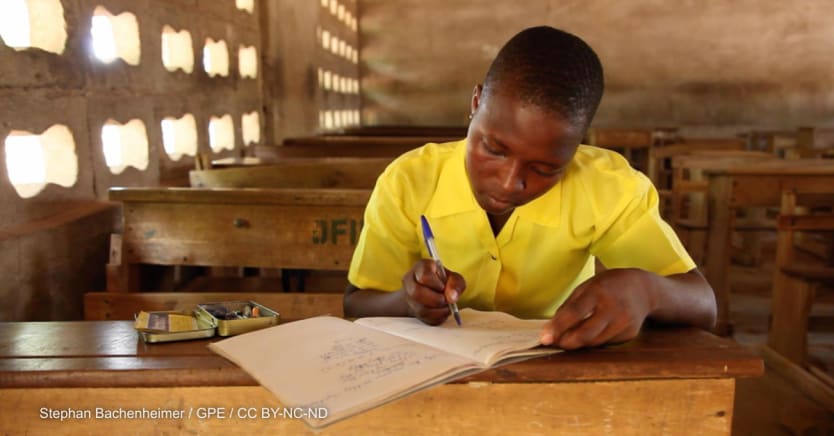Free secondary education: Limited boost to wages, but gains for health

Giving kids in Ghana a free secondary education may not have significantly improved their wages or secured them a private sector job later on, but new research shows some unexpected effects for female graduates of these programs: They had better health outcomes, with intergenerational benefits for their children.
The data was presented Thursday at a World Bank seminar by Nobel Memorial Prize-winning economist Esther Duflo as part of a massive study that she has been conducting with other researchers since 2008.
The team has followed more than 2,000 rural youths since then, with a 94% tracking rate. Nearly 700 randomly selected students from the group were given full scholarships. The rest paid their regular school fees to attend — or did not attend at all.
The male students who were given scholarships to study did not show significant salary gains compared with a control group. Meanwhile, female students showed some improved access to government jobs, though this was based on an especially low rate of female participation initially.
“The labor market outcomes are disappointing at this stage,” Duflo said. But that is not the only or ultimate determinant of a successful free secondary education program, she added, noting that an additional cost-benefit analysis would be needed to weigh all the outcomes.
The research, which to some extent may reflect the state of the private sector labor market in Ghana, is especially important as the country recently moved to make secondary education free for all, and other countries are weighing their options. Free primary education is already widespread in Africa.
The Ghanian initiative, which launched in 2017, is a costly program and has faced pushback from some opposition politicians. The question for lawmakers is whether this is the best use of the state’s budget.
Duflo argued that if policymakers only focused on employment outcomes, the case for free secondary education would be less powerful: Given the limited number of government jobs available and the very limited private sector gains, the results could end up being a letdown.
But her latest research from this week’s presentation raised the prospect that the second-order benefits of education were worth watching.
Female graduates of the program gave birth later in life and had lower fertility rates. Their children also had better health outcomes, and notably their cognitive skills showed a marked improvement.
“The public sector is looming really large. … It really paralyzes the rest of the economy, particularly for graduates.”
— Esther Duflo, Nobel Memorial Prize-winning economistThis is an “important intergenerational impact that comes only from female beneficiaries,” Duflo said. This outcome was only discovered because the study has gone on for so long.
One other finding was that women who graduated from the program were better able to protect their salaries at the start of the COVID-19 pandemic, compared with men.
Devex asked Duflo about her recommendation to policymakers and development agencies, given the labor market results. She said there is a major distortion in Ghana caused by the rush for public sector jobs that the government can help alleviate.
Public sector employment is so highly coveted — and private sector opportunities for secondary and tertiary graduates still underdeveloped — that people stay out of the labor market in hopes of landing a cushy job working for the state, which Duflo said often has a lifetime guarantee, among other perks.
“The public sector is looming really large. … It really paralyzes the rest of the economy, particularly for graduates,” she said. “A first step would be to make the public sector hiring more rational.” This means limiting the chance of obtaining such a job — for example, by placing a five-year cap on applications. After that time, graduates would be ineligible.
“You have to make these people available to the rest of the economy,” she said.
The Brookings Institution has also been following Ghana’s experiment and looked at ways to keep costs down while still expanding secondary education. For example, instead of building new classrooms right away, schools with too few seats began year-round schooling.
This decision has given the government more time to build schools as needed and could be a tactic that other countries may follow.
Search for articles
Most Read
- 1
- 2
- 3
- 4
- 5


